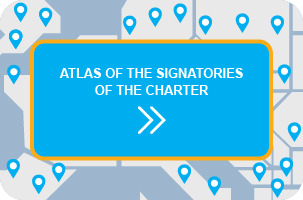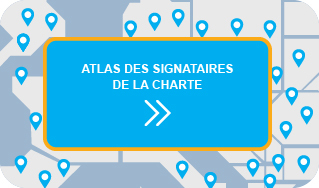About the Observatory
Why create the Observatory?
The Charter encourages signatories to take specific measures to implement the provisions set out in the document: among which figures foremost the drafting of an action plan for equality. However, all signatories have not been able to draft action plans. At meetings organised by the Council of European Municipalities and Regions (CEMR) and its national associations, it became clear that the signatories were lacking examples of good practices and expertise in order to move forward from the signatory stage to the implementation stage.
Based on this observation, in order to respond to the growing demand of support from signatories and to continue CEMR’s engagement for equality, the CEMR Executive Bureau decided, at a meeting in Warsaw on the 28th of September in 2011, to establish the Observatory of the European Charter for Equality of Women and Men in Local Life.
The Observatory has received financial support from the Swedish Government through the Swedish Association of Local Authorities and Regions (SALAR) for a period of 3 years (March 2012 – March 2015) to carry out its activities.
Objectives of the Observatory
The main objective for the Observatory is to help European local and regional authorities to develop local policies for equality between women and men, in particular through the realisation of the objectives outlined in the Charter. How? By supporting the development of action plans, the monitoring of the implementation and the evaluation of the impact on the ground. The Observatory is also in charge of increasing the visibility of the Charter and promoting exchanges between the signatories.
The Standing Committee for Equality of women and men in local life
The CEMR Committee of women elected representatives of local and regional authorities became the Standing Committee for Equality of Women and Men in Local Life, following a decision by the CEMR Policy Committee in Brussels on the 12th and 13th of December 2011. It is composed of elected representatives nominated by the national associations of CEMR that have expressed their interest to participate in the work of the Committee. Its role is to decide on the overall objectives and to follow the work of the Observatory.
Since January 2023, the Committee is chaired by Dr. Claudia Schöning-Kalender, Member of Mannheim City Council (Germany, RGRE). Ms. Silvia Baraldi, Councillor of Legnago Municipality (Italy, AICCRE) serves as co-chair of the Committee.
The national coordinators of the Observatory
The Observatory has established a network of national coordinators composed of administrators and experts working with the Charter from CEMR’s member associations.
This network is in charge of supporting the Observatory’s activities in monitoring the implementation of the Charter by maintaining contact with the signatories and disseminating information related to the Charter at national level.
Current work
2023-2024
- Guide to Intersectionality for Local and Regional Governments (2022 – EN, FR)
- Update of Women in Politics study
- Launch of Urban Agenda of the EU thematic partnership on Cities of Equality
2021-2022
- Training of trainers: National coordinators for the Charter (EN, FR)
- Position paper: A unified and multi-level approach to the EU Directive on combating violence against women and domestic violence (EN, FR)
- 46 Moldovan municipalities sign the Charter (November 2022)
- Cooperation with URBACT in the framework of Gender Equal Cities (updated report June 2022)
- Cooperation with UCLG Africa to develop a Local and Regional Governments’ Charter for Gender Equality in Africa (EN, FR, PT, AR) and accompanying implementation guide.
- Charter 15th anniversary reflection process and subsequent update and expansion of the Charter.
- 18 Polish cities sign the Charter (October 2021)
2018-2020
- Women in Politics: Local and European Trends, 2019 study by CEMR (EN, FR)
- CEMR conference on equality, diversity and inclusion (Bilbao, 2018) – Conference conclusions (EN, FR)
- “Local equality: Going the distance to achieve gender equality” is a position paper prepared by the CEMR Standing Committee for equality and the Expert group on gender equality to guide the work of the Observatory of the 2018-2020 period.
- Revised CEMR-EPSU Guidelines to Drawing up Gender Equality Action Plans in Local And Regional Government















